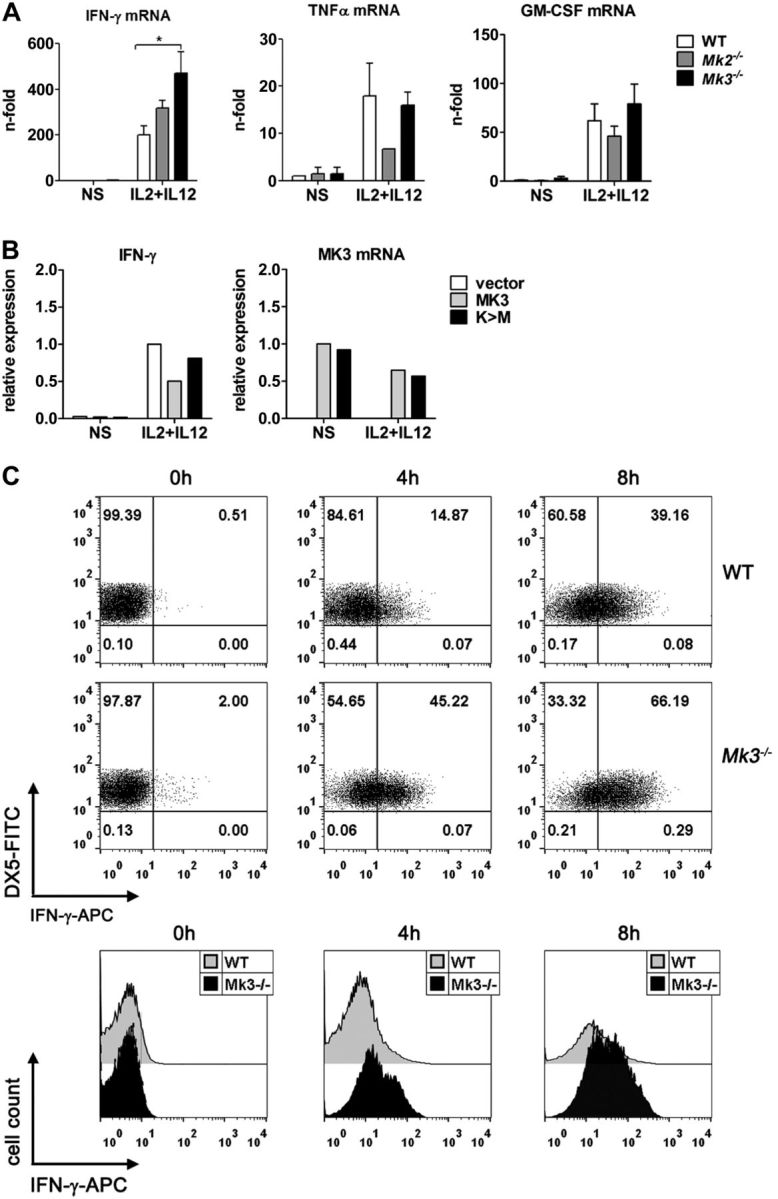Figure 1.

MK3 inhibits IFN-γ mRNA production in NK cells. A) NK cells from C57Bl/6 WT, Mk2−/−, and Mk3−/− mice were isolated, cultured, and stimulated with IL-2 + IL-12 for 3 h, and the total mRNA was isolated and analyzed for the expression of IFN-γ, TNF-α, and GM-CSF mRNA by qRT-PCR. Results are shown as means ± sem (N=3–4). Cells from 3 animals were pooled in each experiment. *P < 0.05, Kruskal-Wallis test. B) NK cells from Mk3−/− mice were isolated, cultured, and transfected for 24 h with an empty control vector or plasmids encoding for WT (MK3) or kinase-dead (K>M) recombinant human MK3. The cells were then stimulated with IL-2 + IL-12 for 3 h, and the total mRNA was analyzed for expression of mouse IFN-γ and human MK3 mRNA by qRT-PCR. The experiment was performed twice, with similar results. Because of the transfection particularity of primary cells, a variation in induction of IFN-γ mRNA was observed between experiments; thus, representative data of only 1 experiment are shown. NS, nonstimulated. C) NK cells from WT and Mk3−/− mice were isolated and stimulated with IL-2 + IL-12 for the indicated times, after which the cells were analyzed by flow cytometry for expression of NK-specific Dx5 and intracellular IFN-γ proteins. Numbers in the quadrants of the dot-plot graphs represent the percentage of cells in each. Representative images of 3 repeated experiments are shown.
